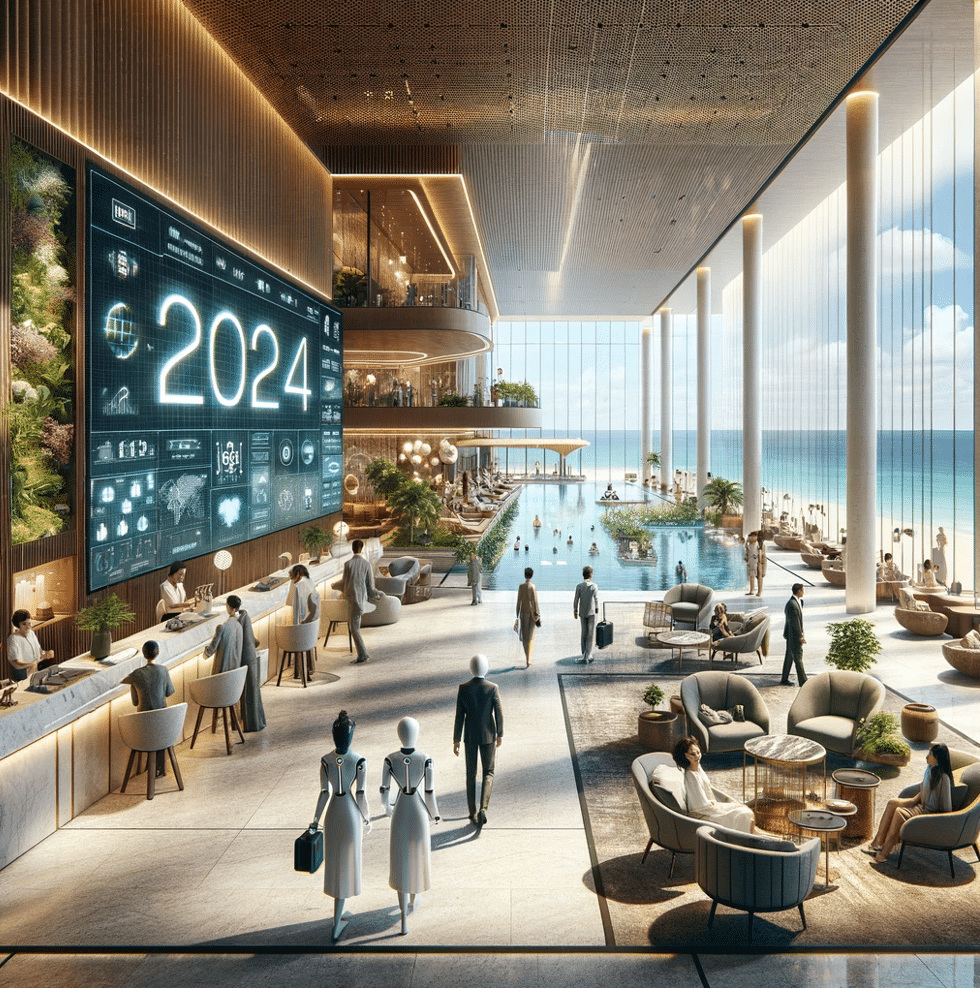In an era marked by rapid technological advancements and evolving consumer expectations, the luxury hospitality sector is experiencing a transformative shift. As we move through 2024, the industry is tailoring its offerings to meet the demands of an increasingly discerning clientele, integrating cutting-edge technology, personalized experiences, and a renewed commitment to sustainability. These trends are not just redefining luxury travel; they are reshaping the way guests interact with their environments, creating a new blueprint for the ultimate in high-end hospitality.

1. Hyper-Personalized Experiences
The concept of personalization in luxury hospitality is undergoing a significant evolution. No longer confined to monogrammed pillows and tailored welcome amenities, personalization now leverages big data and AI to anticipate guest preferences and needs. Hotels and resorts are employing sophisticated algorithms to analyze previous stays, social media behavior, and other data points to tailor every aspect of a guest’s experience. From customized dining menus to bespoke excursion itineraries, the aim is to create a profoundly personal and unique experience for each visitor.
2. Seamless Technology Integration
As technology continues to permeate every aspect of our lives, luxury hospitality brands are integrating it into their services to enhance guest convenience and comfort. Voice-activated rooms, smart mirrors, and AR-enabled environments that allow guests to customize the artwork and décor in their accommodations are becoming more common. Furthermore, apps that control room temperature, lighting, and entertainment systems not only improve the guest experience but also enhance the efficiency of hotel operations.
3. Sustainability as Standard
Sustainability is no longer a niche selling point but a core component of luxury hospitality. High-end travelers are increasingly conscious of their environmental impact, prompting luxury hotels to rethink their practices. This trend extends beyond the use of organic toiletries and energy-efficient systems; it includes comprehensive approaches like building materials sourced from sustainable suppliers, zero-waste kitchens, and systems that recycle heat from air conditioning units. Additionally, many luxury properties are integrating the local culture and heritage into their offerings, not only to educate guests but to enrich their experience and support local communities.
4. Revitalizing Health and Wellness
The health and wellness trend in hospitality is expanding beyond the traditional spa. Luxury hotels are incorporating medical wellness, offering services that include diagnostic health checks, nutritional advice, and personalized fitness programs overseen by professional health experts. These offerings cater to a growing segment of travelers who view vacations not just as a time for relaxation but as an opportunity to improve their health and well-being.
5. Exclusive Experiences
Exclusivity remains at the heart of luxury, and the sector is finding new ways to offer exclusive experiences. This includes private access to art collections, bespoke tours led by experts, and once-in-a-lifetime events like dining under the stars in remote locations. Luxury hospitality brands are also partnering with high-end retailers and fashion brands to provide private shopping sessions and custom product offerings.
6. Rise of the ‘Bleisure’ Traveler
The blending of business and leisure travel, or ‘bleisure,’ is a trend that continues to gain momentum. Luxury hotels are adapting to this by offering facilities that cater to both needs. This might include rooms designed with office functionality, high-tech conference facilities, and leisure amenities like golf simulators and rooftop bars. The aim is to provide a seamless experience that caters to the professional and personal needs of travelers.
7. New Frontiers in Accommodation
The definition of luxury accommodation is expanding to include not just penthouses and villas but also unique experiences like underwater hotels, space hotels, and revamped historic mansions. These ventures highlight the industry’s commitment to pushing boundaries and delivering novel experiences that captivate the imaginations of luxury travelers.
As we look ahead, the luxury hospitality sector is set to continue its trajectory of innovation and excellence. With these emerging trends, the industry is not just responding to the changing tastes and expectations of global travelers; it is actively shaping them, offering new levels of luxury that are as conscientious as they are captivating. The year 2024 will undoubtedly see these trends gain further momentum, as the luxury hospitality industry remains at the forefront of innovation in the quest to provide unforgettable experiences.

